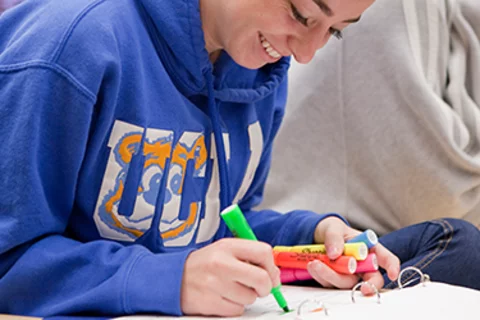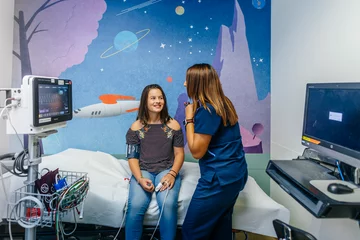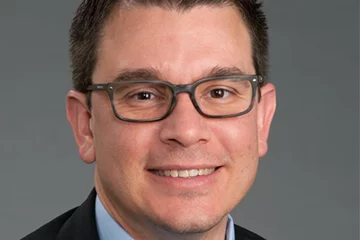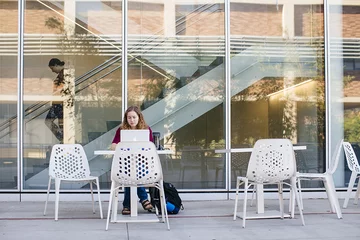Medical Students Study Hard. Here's How to Do Test Prep Right.
Future doctors learn a lot in four years. So, while medicine attracts particularly bright students, successful medical school test prep often requires students to learn new study habits.
"It's an intense testing time," says Sue Nahm, director of student support at the David Geffen School of Medicine at UCLA. "The volume and pace are quite different from what most students have experienced."
At UCLA, medical students must perform well on two main types of exams:
- Block exams: The first two years consist of coursework, which is divided into topic-specific "blocks." After each block, students take a final exam. Along the way, faculty administer weekly self-assessments to ensure students are digesting the material.
- National board exams: Taken after the second year, the Step 1 board exam helps residency programs determine which students to accept. After year three, students must pass the Step 2 board exam to graduate.
To perform well, Nahm coaches students to apply these four principles to medical school test prep:
1. Know the Test
For block exams, Nahm suggests asking instructors what the test will look like — "whether it will consist of multiple-choice questions or short essays, and if it will involve problem-solving or be more memorization-based."
Instructors and older students can also explain what information is "high-yield," or most important for the test.
"Many students have always studied by taking extremely detailed notes. Then they crammed for exams by memorizing those notes," says Nahm. "In medical school, it's impossible to memorize every detail, especially at the last minute."
Throughout each block, Nahm tells students to "study towards the weekly self-assessments as if they're real exams and identify knowledge gaps." To prepare for finals, she suggests carving out at least a week to review and solidify material.
"On day one, organize your notes based on what's high-yield," Nahm says. "The next couple days, use study tools — flashcards, notes, self-assessments — to review and quiz yourself. Over the next few days, identify gaps where you need to do more reading. Then meet with a tutor or study group to share notes and talk through what you've learned. On the last day, take time to relax so you're not stressed going into the exams."

Studying for board exams takes longer, but the David Geffen School of Medicine at UCLA provides a dedicated four- to six-week study period after the second year when students can focus on Step 1 preparation. "Students might not perform well in their courses if they're too focused on studying for board exams while working through the curriculum," explains Nahm. She advises students to begin with a few study resources and gradually work up to the dedicated study period.
2. Know Yourself
Nahm says students must understand their own learning styles — whether they're visual, auditory or kinesthetic learners, or whether they learn best through reading and writing.
"It's also important to know if you clearly see big-picture concepts or if you get bogged down in details," she says. "In medicine, there are facts you need to memorize. But a big portion of how you're tested, especially on board exams, requires you to apply that knowledge to a clinical setting."
To better see the big picture, Nahm suggests working with tutors or peer study groups. "Having to explain something out loud requires a whole level of understanding beyond rote memorization," Nahm says. "It allows students to apply what they're learning and anticipate possible questions."
3. Know Your Available Resources
Nahm says that, because medical students have typically performed well academically, they're used to being self-sufficient and often won't ask for help when they need it.
"Be proactive about building a toolkit of resources. We offer tutoring services and weekly review sessions with older students who've been through the curriculum. Faculty has office hours, and counseling and psychological support services are also available."
4. Know Your Limits
Medical students study intensively, which can easily lead to burnout. "Successful test-taking requires stamina and focus. Students need daily study breaks to rest, eat healthy and exercise," advises Nahm. "Usually self-care is the first thing to go in high-stress situations. Pacing yourself and developing healthy habits throughout medical school will set you up for test-taking success, and prepare you to become a thriving doctor."




